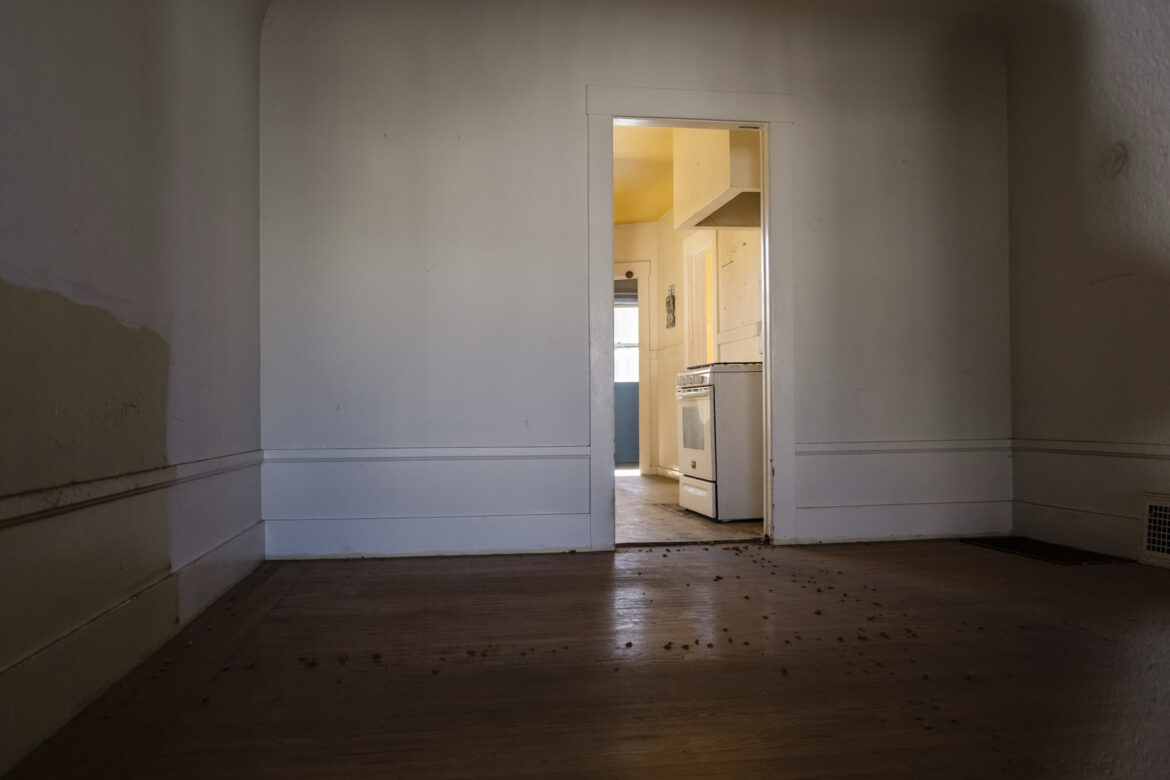This article is adapted from an episode of our podcast “Civic.” Click the audio player below to hear the full story.
The last remaining statewide tenant protections against eviction for pandemic-related rent debts are expiring at the end of the month. San Franciscans are protected from eviction for unpaid rents due in and after April, but they will still be vulnerable to eviction for past rent debts.
At the same time, the state’s rent relief program will stop taking applications at the end of March. Applications will still be processed and payments completed beyond that date. But a new report from PolicyLink and the Western Center on Law and Poverty indicates applicants have been waiting months for the state to make decisions on their cases, and that most applicants have not received payment.
Long wait times could spell trouble for tenants whose protection from eviction hinges on their rent relief applications. Until the end of March, a tenant who has applied or is approved for rent relief from the state cannot be evicted for their pandemic rent debt, based on the logic that landlords should not seek to evict tenants for debts the state might cover. With that shield removed in April, even tenants who tried to get their debts covered by the state could lose their housing.
“It will be a complete failure if people who’ve applied to this program are evicted because we let these protections lapse — if they are just waiting for their applications to be reviewed and they’re evicted,” said Sarah Treuhaft, vice president of research at PolicyLink. “It completely counters the entire premise of the program and will contribute to homelessness.”
PolicyLink’s numbers are dire, showing that just 16% of applicants to the state’s Emergency Rent Assistance Program actually received funds. The report also shows the median wait time for an applicant to receive a decision was more than 100 days, and that the majority of the roughly half-million applicants to the program are awaiting a decision.
Geoffrey Ross, deputy director for the California Department of Housing and Community Development, disputed the report’s findings, saying the analysis uses a dataset that does not count more than 100,000 payments that the state has made. PolicyLink, which used data from the state acquired through a public records request, stands by its analysis.
But both groups agree that tenants who are behind on rent for reasons stemming from the pandemic should apply to the rent relief program before it ends. Funds will be made available to cover the requests.
“The money is not the issue,” Treuhaft said.
“The program really is in a position to make sure that every eligible application submitted on or before March 31 for rent and utility debts incurred between April 1, 2020, through March 31, 2022, can be paid,” Ross said.
But Treuhaft also said the state should extend its protections for tenants and the rent relief program. If not, it could see a drastic increase in evictions.
“The most important thing is to extend these limited eviction protections for those who’ve already applied to the program. And they need to be extended without preventing local jurisdictions from enacting stronger protections,” she said. “What we’re really seeing here is a long-term issue. So, the pandemic is not over for all workers in the state of California. But this program is ending March 31. It really needs to be extended because people still have rent debt.”
A segment from our radio show and podcast, “Civic.” Listen at 8 a.m. and 6 p.m. Tuesdays and Thursdays at 102.5 FM in San Francisco, or online at ksfp.fm, and subscribe on Apple, Google, Spotify or Stitcher.










